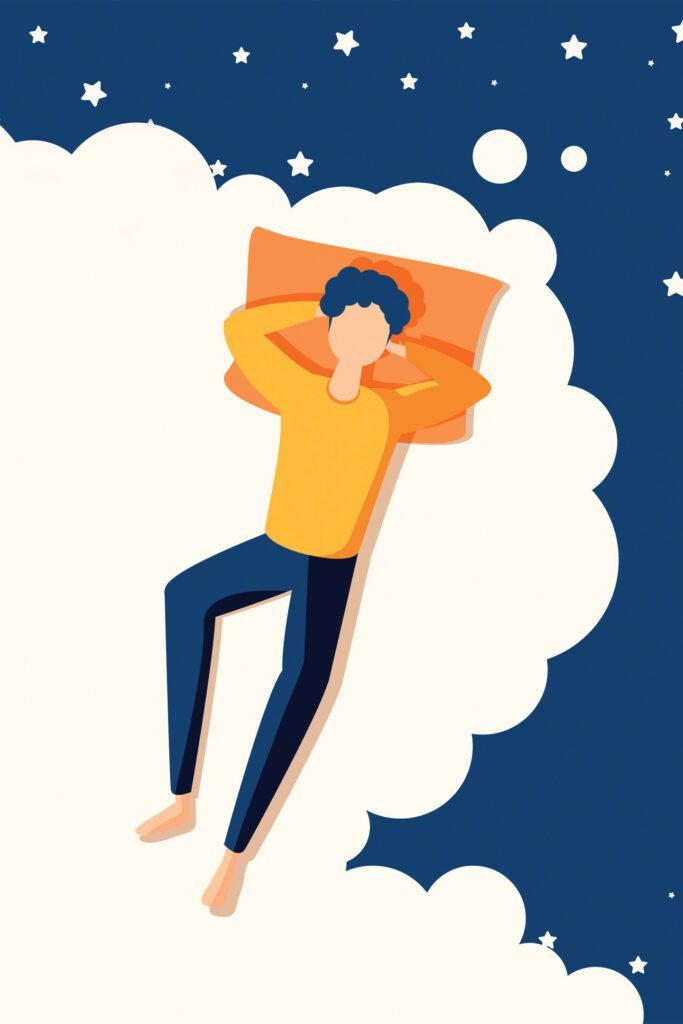Simple Tips to Stop Snoring
It’s family vacation season, which might mean sleeping in closer quarters than usual. Here are some tips to make sure you (and your family!) get a restful night of sleep.
Try snoozing on your side.
Sleeping on your back can constrict your airway and lead to snoring, but sleeping on your side can help keep your throat and nasal passages open. A good body pillow can help you stay on your side more comfortably.
Skip the last call.
Did you know that drinking alcohol before bed can increase snoring? Sedatives cause the muscles in your neck and throat to relax, which leads to noisy vibrations when you breathe. Closing your tab about four to five hours before bedtime can help limit the negative effects of alcohol on your sleep.
Hydrate, hydrate, hydrate!
Drinking enough water is generally important for your health, but it can also decrease your chances of snoring. When you’re dehydrated, normal secretions in your nose and throat become stickier, which often leads to snoring.
Clear those sinuses.
If snoring starts in your nose, opening your nasal passages can be an easy fix. The steam from a hot bedtime shower might be enough to clear out your sinuses, or you could opt for nasal strips to physically open up your nasal passages.


5 Signs You Might Have Low Testosterone
Testosterone production naturally decreases with age, but testosterone levels can sometimes decrease more than they should. The symptoms associated with low testosterone can be subtle, but they can keep you from feeling your best. If you are experiencing some of the following symptoms, you can talk to your doctor about testing and treatment for low testosterone.
1. Hair loss.
Balding is a natural part of the aging process for many men, but men who are experiencing low testosterone may notice a loss of body or facial hair as well.
2. Changes in body fat.
Increased levels of body fat can be a sign of low testosterone. Gynecomastia (enlarged breast tissue) in particular is often a sign of hormonal imbalance.
3. Changes in mood.
Testosterone plays an important role in many bodily processes, and disruptions can lead to notable changes in your mood including irritability, depression, anxiety, and more.
4. Fatigue
A decrease in testosterone can lead to decreased energy. Feeling tired regardless of how much sleep you get each night or lacking the motivation to do the activities you once enjoyed can both be signs that low testosterone is affecting your energy.
5. Low sex drive.
Testosterone is linked to libido, or sex drive, in men. Decreased sex drive is a natural part of aging for many, but a drastic change can be a sign that your testosterone levels are out of balance.

